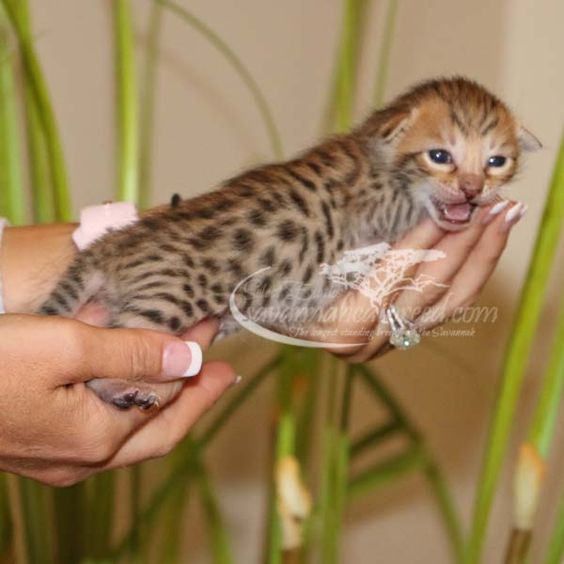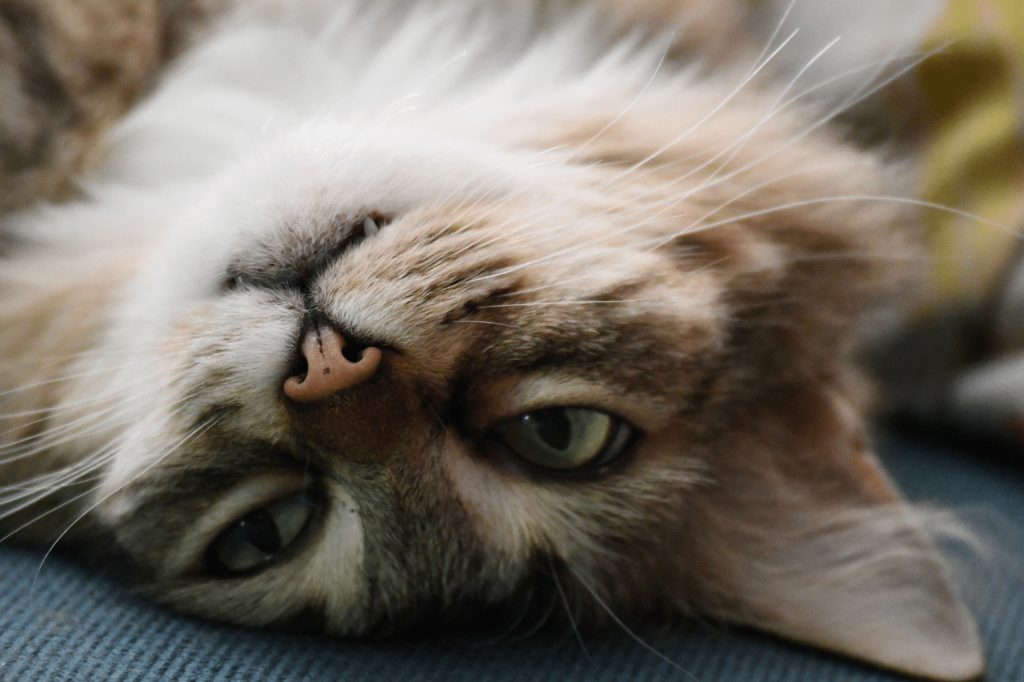F3 Savannah kitten

Owning an F3 Savannah kitten is more than just a pet; it’s an incredible experience that brings joy and warmth into every household. These extraordinary cats are more than just cute; they have a special mastery that will brighten your day.
The playful and affectionate photos you see on Instagram are real; F3 Savannah kittens have always brought joy to their owners.
Their charming presence transforms your home into a happy haven, elevating ordinary moments into extraordinary memories.
Owning a kitten isn’t just about having one; it’s important to show them care and attention through thoughtful actions. Taking responsibility for their well-being ensures a happy and healthy life by providing nutritious meals, regular check-ups with the doctor, and creating a safe and stimulating environment.
In this article, we’ll guide you through everything you need to know about caring for your newborn Savannah kitten, from the moment they’re born to when they’re 11 weeks old.
History and Origin of F3 Savanna Kitten
The origins of the F3 Savannah can be traced back to the early 1980s when enthusiasts sought to create a domestic cat with a cool appearance similar to the serval. The “F” stands for filial, which denotes the generation level from the serval. F1 is the first generation, followed by F2, and finally by F3.
As a result of the increased generations away from the wild serval parent, it is preferable to obtain F3 savannah over F1.F2. They also have a more predictable temperament and can better adapt to a household.
The Savannah cat was developed by a variety of breeders, to combine the wild appearance of the serval with the friendly traits of domestic cats. Which was successful and became popular. The popularity of F3 Savannah cats is global, with a strong presence in countries such as the United States.
Also Read: Savannah SBT Stands
F3 Savannah Kitten’s Price
F3 Savannah usually costs between $3,000 to $7,000. Price may vary based on factors like the kitten’s family history and the breeder’s reputation.
Family History
Family history has a significant impact on the price of any Savannah, including f1f2f3. The man believes that family history is important because it influences genes, behavior, and overall quality.
If an F3 Savannah comes from a family with good health, desirable characteristics, and well-behaved ancestors, the kitten is more valuable. People often look for kittens with impressive family histories because they are more likely to have positive traits and make excellent companions.
Also Read: Are Orange Cats Dumb? Feline Intelligence
Breeder Reputation
Breeder reputation is far too important in determining the kitten’s price. Consider hiring a reputable car mechanic.
People trust mechanics who are well-known for their quality work and come highly recommended. Similarly, when purchasing a kitten, the breeder’s reputation is extremely important.
A breeder who has a good reputation for doing things right, such as caring for their cats and breeding responsibly, can charge a higher price for their kittens. This is because buyers know they are getting a well-raised cat who will make an excellent companion.
So, just like you’d trust a skilled mechanic for your car, a breeder’s good reputation is a big deal when choosing a new furry friend.
In essence, the combined factors of family background and breeder reputation intricately intertwine to define the value and desirability of F3 Savannah kittens in the competitive realm of exotic cat breeding.
Adoption
You can adopt Savannah cats from local animal shelters, and rescue organizations, or check online platforms like Petfinder or Adopt-a-Pet to find adoptable pets in your area.
Local Animal Shelters
The first place you should visit to adopt all breeds of cats is animal shelters or municipal pounds. These facilities often have a variety of cats available. Also since you live close by they will let you know if the kind of cat you are about to adopt is allowed in your area.
Rescue Organizations
Most cats who were homeless were accommodated by rescue organizations, they specialize in all kinds of breeds, including Savannah cats.
In most cases you may hardly find Savannah cats, because if Savannah gets punished by the owners they automatically return to their wild lives, I believe that’s why most rescues don’t give them out as domestic cats.
Online Platforms like Petfinder or Adopt-a-Pet
Petfinder has been around since the year 1996 and they are among the largest online pet adoption sites, serving the whole of North America.
According to Wikipedia, the company reports that it currently lists “more than 315,000 adoptable pets from nearly 14,000 animal shelters and rescue groups.
You can search for Savannah cats in your area, view their profiles, and connect with the organizations or individuals handling their adoption. Always ask questions about the pet history like I said the pet family history is way to important than cute eyes, legs, and nice fur. So always before making a decision.
Taking Care of Savannah Kittens
Before welcoming any feline friends into your home, such as charming Savannahs, take the time to understand their age, particularly if you’re considering adoption during their early weeks.
The initial six months of a Savannah kitten’s life can be beautifully characterized by four distinct stages of care.
These are, Tiny Paws (0-4 Weeks) Adventurous Explorers (5-11 Weeks) Energetic Bloom (2-4 Months) Energetic Bloom (2-4 Months) Adolescent Charms (4-6 Months)
Tiny Paws (0-4 Weeks)
Getting a cat who is 0 to 4 weeks old is not an easy task, and not everyone will be able to do what it needs to do. During these initial weeks, the Savannah kittens are expected to be kept in a cool and quiet place. They’ll mostly rely on their mother, so it’s vital to provide a comfortable and quiet space for them to stay close.
As an owner, you can support this phase by ensuring the mother has a peaceful environment to nurture her kittens
Adventurous Explorers (5-11 Weeks)
As they grow, from 5 to 11 weeks, Savannah kittens become curious adventurers. They start exploring their surroundings and developing essential social and motor skills. Interaction with littermates and gentle human exposure is beneficial.
Energetic Bloom (2-4 Months)
Between 2 to 4 months, the kittens experience an energetic bloom. They become more playful and energetic, requiring engaging toys and activities. A balanced diet supports their rapid growth during this stage.
Adolescent Charms (4-6 Months)
In the next phase, from 4 to 6 months, Savannah kittens exhibit adolescent charms. They begin asserting their independence and might test boundaries. Continued socialization and positive reinforcement help shape their behavior during this crucial period. Regular veterinary check-ups ensure they are healthy and thriving.
Nutrition Tips for Happy Kittens
When it comes to your kitten’s diet your quality should prevail over quantities. Opt for a good kitten food that supports their growth—check for age-appropriate standards. Introduce new foods slowly, keep things balanced, and don’t forget the constant supply of fresh water. A well-fed kitten is a happy kitten!
According to Ahofstatesville High Nutrition, food is important for cats. It helps their good hair coat, claw development, and heart health. Cardiovascular health is vital in cats in particular, and it’s often linked to the diet.
What Can Go Wrong with Your Furry Pal: Spotting Signs Early
Cats are strong pets things might not go wrong but watch how your cat behaves. Pay attention to your kitten’s behavior. If they’re acting off being lethargic, refusing food, or just acting weird it might be a sign something’s up. Don’t hesitate to consult your vet. Regular check-ups are like kitty insurance for catching problems before they get serious.
Preventing Drama: Taking Care of Business Ahead of Time
Prevention is the name of the game. Vaccinations, flea protection, and regular vet visits are your go-to moves. Stick to the vaccination schedule, keep those fleas at bay, and visit the vet for a regular check-up. It’s like giving your kitten a superhero shield against health issues.
Dodging Nasty Pests: Parasites, Fleas, and Heartworms, Oh My!
Kittens can pick up all sorts of unwanted hitchhikers. Get preventive medications from your vet to keep parasites and fleas away. And don’t forget about heartworms—protect your little friend from these creepy crawlies early on.
Growing Up Right
Around the 5-6 month mark, have a chat with your vet about spaying or neutering. It’s not just about preventing surprise litter; it also helps with health and behavior. Responsible pet parenting at its finest!
Training and Friendship
Training isn’t just for dogs. Use positive vibes to teach your kitten the ropes. Encourage good behavior, and gently discourage the not-so-great stuff. Spend quality time playing and cuddling to build that unbreakable bond. Happy kitten, happy human!
In a nutshell, keeping your kitten in tip-top shape involves good food, keeping an eye on their antics, preventive measures, timely spaying/neutering, and positive training for a rock-solid connection. Prioritize your furball’s health, and you’re in for a lifetime of purrs and playtime.




